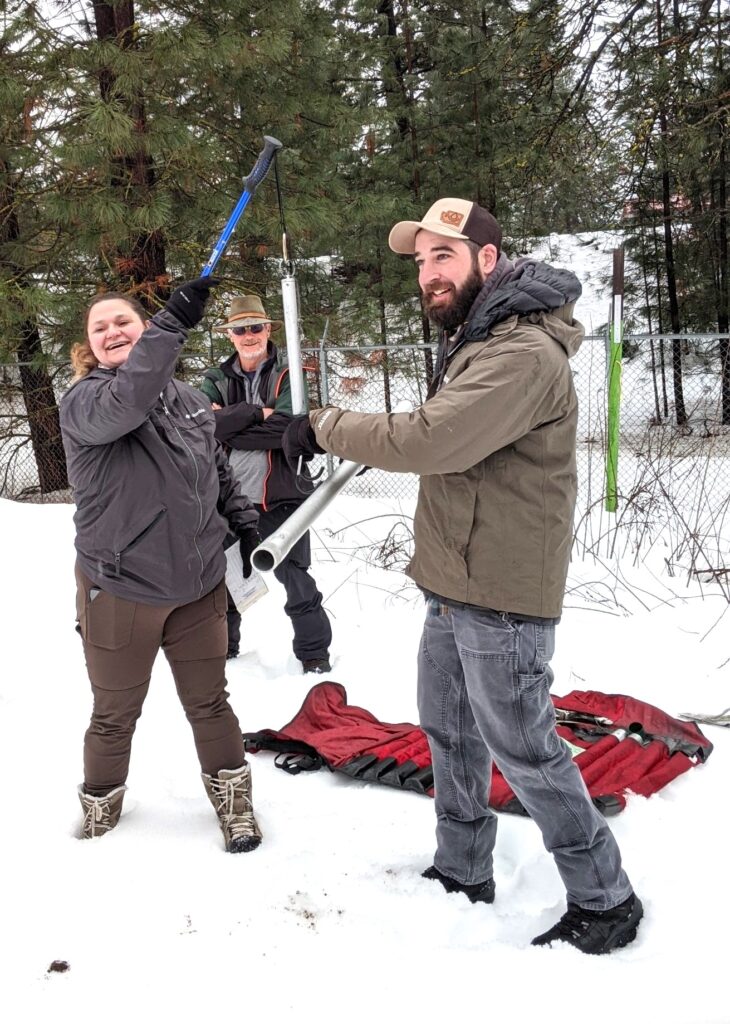Below the ghostly visage of Sleeping Lady, in the picturesque landscapes of Leavenworth and Wenatchee, Washington, an innovative workshop brought together Eastmont 5th and 6th-grade educators for a transformative journey into the realms of science and nature. Organized by Cascade Fisheries and Cascadia Conservation District in partnership with Pacific Education Institute, this snowshoe trek not only provided teachers with a refreshing outdoor experience away from their classrooms, but also enriched their pedagogical repertoire with hands-on STEM learning opportunities.

A hatchery tour of the Leavenworth National Fish Hatchery gave participants a behind-the-scenes look at the work of Yakama Nations Fish Culturalists – shocking and sorting salmon eggs for rearing. The eggs viewed were destined for their classrooms a mere four days later – and the knowledge gained about salmon egg health would go on to directly benefit students and the tiny salmon in those classroom tanks.
Facilitated by dedicated conservationists from the Natural Resource Conservation Service (NRCS), the workshop offered educators a unique opportunity to delve into the intricate world of snow science. Participants measured snow water equivalence, a crucial metric for estimating snowpack and future water availability. Armed with measuring equipment, teachers learned of a little-known career involved with unraveling the science and mathematics behind snow water equivalence.
By actively participating in data collection and analysis, educators gained valuable insights into real-world applications of STEM concepts, which they could integrate into their classroom teachings.
Additionally, the workshop featured an enlightening nature walk and discussion led by a Colville Fisheries Biologist. During this immersive experience, participants delved into the concept of the “four Cs” of healthy salmon river ecosystems, which must be cold, clean, connected, and complex. Through interactive discussions and on-site observations, educators gained a deeper appreciation for the interconnectedness of natural systems.

The impact of this workshop extended far beyond its duration, resonating within classrooms and communities alike. Throughout the day, PEI staff connected the new STEM learning from the professionals to state standards (NGSS, ESE, STI, and CCSS), as well as some social and emotional connections to the importance of connecting students with their place. Equipped with newfound knowledge and confidence, teachers returned to their schools inspired to ignite curiosity and cultivate critical thinking skills in their students.
By integrating these real-world examples into their curricula, educators are nurturing the next generation of environmentally conscious citizens and STEM enthusiasts. The snowshoe trek workshop exemplifies the power of experiential, place-based professional learning in enhancing STEM education!
